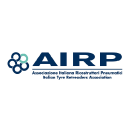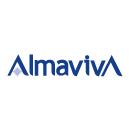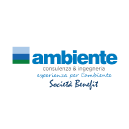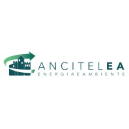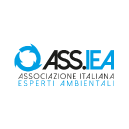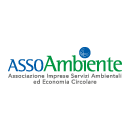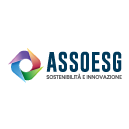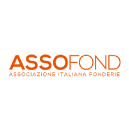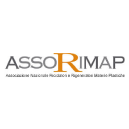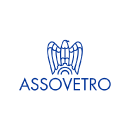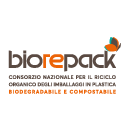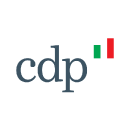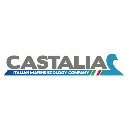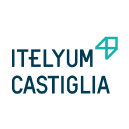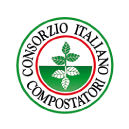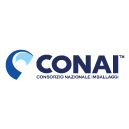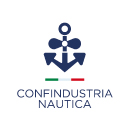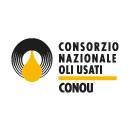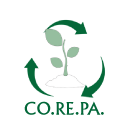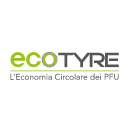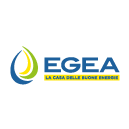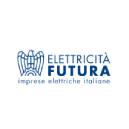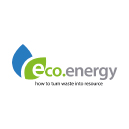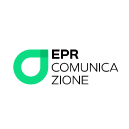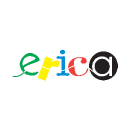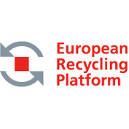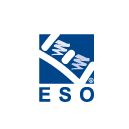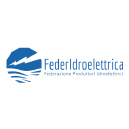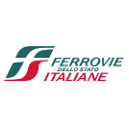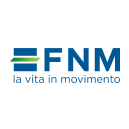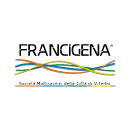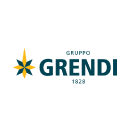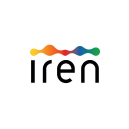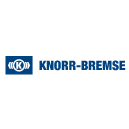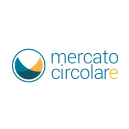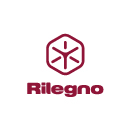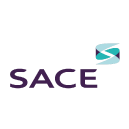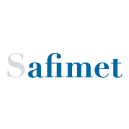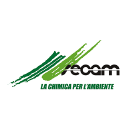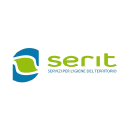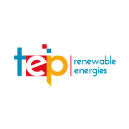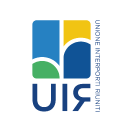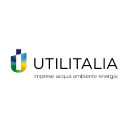OUR MISSION
The Sustainable Development Foundation is an authoritative point of reference for the main sectors and actors of the green economy: the economy for a sustainable development. We count on a set of experience, knowledge and credibility, acquired in years of thorough work, which we put at the service of a civil and environmental commitment, especially supporting businesses and organizations sharing a common vision path towards the ecological transition.
We are committed to a constant update, to the elaboration and dissemination of publications, studies, and research, to information and discussion events, to the involvement of institutions and stakeholders, as well as to the promotion of networks to advance strategic green economy themes: climate neutrality and energy transition, circular and regenerative economy, green cities and sustainable mobility, the natural capital.
Edo Ronchi
President
![]()
ACTIVITIES
THE STATES GENERAL OF THE GREEN ECONOMY
The States General of the Green Economy is promoted by the National Council of the Green Economy – which gathers 67 business organizations – in collaboration with the Ministry for Ecological transition aimed at developing proposals and recommendations for policy makers in order to affirm a new Italian economy trend towards the development of a green economy.
The States General of the Green Economy is a multi-stakeholder participatory process based on a bottom-up consultation approach of the main Italian green economy actors, involving companies and associations of companies.
The process culminates every year with a large public two days event during Ecomondo Exhibition, with over 80 speakers and 3,000 participants. The preparatory process takes place over the entire year, through consultations of the members of the Council, experts, stakeholders, and public events.
Further information on www.statesgeneral.org
SUSTAINABLE MOBILITY
The Sustainable Development Foundation promotes the National Platform for Shared Mobility (Osservatorio Nazionale sulla sharing mobility), launched in 2015 and supported by the Ministry for Ecological Transition and the Ministry of sustainable infrastructures and mobility. The Platform is the point of reference for shared mobility in Italy and is composed by over 120 members, including shared mobility providers, local authorities and research centers.
Every year, the Platform publishes the National Report on Shared Mobility and organizes the National Conference on Shared Mobility.
Further information on www.osservatoriosharingmobility.it
ENERGY AND CLIMATE
The fight against climate change represents the major challenge, not only of environmental nature, of our age. The world of energy, in its broadest sense, is changing rapidly. It is necessary to accelerate such process in order to achieve full decarbonization of the economy by 2050. It is a challenge that we can overcome, thanks to the increase in renewable sources of energy and energy savings, and to the promotion of efficiency in all areas.
On these issues, the Foundation conducts studies and research, focusing on different subjects ranging from national energy scenarios to energy costs; supports planning activities by companies and administrations; organizes workshops on relevant issues; releases periodic focus studies.
Italy for Climate is an initiative from the Sustainable Development Foundation, promoted by companies particularly concerned about climate change. The aim is to support the transition towards a carbon neutral economy, and to promote a well-informed debate on the topics of climate and energy by means of a broad exchange with companies, institutions and the public.
Further information on www.italyforclimate.org
REPORTING, GREEN STRATEGIES, ECOINNOVATION
The Sustainable Development Foundation has been on the side of companies for over 10 years, especially on those focused on green activities, as the main drivers in the ongoing transition to the green economy. A green economy requires a shift in business models approach to environmental aspects, including the environmental quality of the output in the competitiveness evaluation.
In order to succeed, a green economy needs innovative instruments and approaches applying to the business world and beyond. New reporting tools are needed, in order to grasp and transparently communicate the real contribution made to the green transition.
The Foundation supports businesses and public administrations in the definition of advanced green strategies, in the search for new business models oriented towards sustainability, in environmental certification paths and in the assessment and reporting of their performance
Il Green Economy Report®
The Foundation, in order to guide companies in a transparent and innovative reporting process, has developed a specific methodology: the Green Economy Report (GER), designed for companies active in the transition to a green economy. While GER is compatible with the main international reporting standards, it also implements LCA methodologies and calculates environmental footprints of the entire life of the product, from manufacturing to end-of-life.
Download Green Economy Report Brochure (italian)
WASTE AND CIRCULAR ECONOMY
Efficient use of materials is one of the pillars of sustainable development. The philosophy of the Foundation is to always look forward and stimulate, support, and facilitate a change in the current production and consumption patterns. The means chosen to achieve the green economy objectives and, with them, to accomplish circularity, are consensus-building, development of proposals and knowledge support.
To this end, the Foundation has established a structure for the development of studies and proposals on efficient use of materials within production, distribution, consumption and in the area of waste management. The activities target both private and public sector and include reports and assessments, prevention programs and waste management plans, evaluation and analysis of governance models, studies and legal/regulatory assistance,
The Circular Economy Network (CEN) is a project that aims, in the wake of the European strategy, to stimulate a profound change in our production system, moving from a linear economy to a circular model capable of supporting the social, ecological and climate challenges that arise from the green economy, while, at the same time, increasing the competitiveness of Italian companies within international markets.
The work of the Circular Economy Network is based on some fundamentals: promoting, collecting, and disseminating studies, research; defining key indicators and analyzing national performances; evaluating critical issues and identifying possible solutions; developing strategies, policies and measures and proposing them to decision makers; disseminating best practices and techniques.
Further information on www.circulareconomynetwork.org
NATURAL CAPITAL AND AGROECOLOGY
The need to develop new business models able to really take into account the services provided by natural systems, has been promoted with increasing commitment by the most important international organizations. In this context, companies will need to be able to play an active role in the enhancement of the Natural Capital, in order to seize the opportunities arising from a market that looks at these issues with growing interest.
The Foundation promotes activities aimed at the environmental rehabilitation of territories, the creation of green infrastructures, the recognition and assessment of ecosystem services, the involvement of companies in initiatives for natural capital conservation and enhancement of the Natural Capital, and the promotion of models and practices for environmental innovation in agriculture.
The Foundation is also committed to implement local studies and activities aimed at promoting green economy experiences in Protected Areas and territories with a high environmental quality.
European projects

Our lifestyle is responsible for 72% of global GHG emissions. The PSLifestyle project “Co-Creating Positive and Sustainable Lifestyle Tool with and for European Citizens”, funded by the EU Horizon 2020 research and development project, thus aims at contributing to combat this trend.
The project is coordinated by SITRA and gathers 13 partners from 8 EU countries. Those participating from Italy are the Sustainable Development Foundation and GreenApes.
PSLifestyle aims at raising awareness among citizens on issues related to climate change problems, as well as to stress the importance of individual actions, supporting a widespread of reduced environmental impact behaviors.
In order to meet this objective, a number of simple web and mobile tools will be developed – also thanks to the inputs from citizens in participatory activities – so to assess the impact of daily actions and to support the adoption of more safe and sustainable lifestyles, covering four main areas: housing, mobility, food, and consumption.
The project aims to involve four million EU citizens in the collection and sharing of data.
In order to meet the specificities of each of the 8 target regions (Estonia, Finland, Germany, Greece, Italy, Portugal, Slovenia, and Turkey) a local version of the tools will be developed, also with contributions from citizens through living labs and other participatory events. This will allow to understand the capacities, opportunities and reasons for the local communities to commit in the implementation of daily responsible and green behaviors.
In addition, PSLifestyle will work with other social aggregators, such as administrations, companies, civil society organizations, and academia, in order to develop solutions based on data collected from citizens.
The Sustainable Development Foundation will contribute to the engagement of stakeholders – especially among companies – and will support the national customization of PSLifestyle services, by elaborating models and identifying technical tools aimed at measuring the effects on GHG emissions of some daily activities.
 The Foundation is a partner in the LIFE BEEadapt project, mainly aimed at the implementation of a climate change adaptation strategy for some territories, as well as to the safeguard of populations of bees and butterflies.
The Foundation is a partner in the LIFE BEEadapt project, mainly aimed at the implementation of a climate change adaptation strategy for some territories, as well as to the safeguard of populations of bees and butterflies.
A number of scientific studies over the last decades recorded a significant reduction in the number of pollinators populations, especially apoidea. In Europe, the main causes of the reduction are related to the intensification of agricultural practices and the employment of pesticides, the removal of natural elements in rural areas (such as hedges and trees rows, that were once typical of our rural landscape), and climate change.
Improving the conservation status of pollinators is one of the targets of the European Green Deal, also in consideration of the importance that such insects have in the protection of some economic activities. Over 75% of food crops depend, to a certain extent, on pollinators. In Italy, it was estimated that the value of the pollination by pronubial-pollinating insects for some crops (including citruses, tomatoes, apples, pears and peaches) accounts for little over 150 mln euro per year.
The presence of healthy populations of bees and butterflies is thus essential to guarantee the conservation of our landscape, the diversity of agricultural crops, as well as food security itself.
Therefore, LIFE BEEadapt plans to test new growing techniques, to create new green infrastructures, to implement multilevel governance activities involving key actors, with competence in in various sectors, such as territorial planning, funds management, the environment, and agriculture.
 The Mediterranean basin is one of the world’s most important hotspots of biodiversity in terms of the richness of species and ecosystems. However, human activities and overexploitation of natural resources are resulting in ecosystem degradation and species loss at an alarming rate, requiring a coordinated transnational approach.
The Mediterranean basin is one of the world’s most important hotspots of biodiversity in terms of the richness of species and ecosystems. However, human activities and overexploitation of natural resources are resulting in ecosystem degradation and species loss at an alarming rate, requiring a coordinated transnational approach.
With the aim of enhancing the protection and conservation of the biodiversity of this hotspot, the COASTRUST project, in which the Foundation is a partner, was developed within the Interreg Euro-MED programme. COASTRUST addresses the need for sustainable use, management, protection, and restoration of species, habitats, and ecosystems. This involves engaging stakeholders from related economic sectors and citizens, all in line with the European policy framework that promotes participatory approaches to foster biodiversity conservation.
The project, coordinated by the Region of Western Greece, involves 9 partners: Regional Development Agency Dubrovnik-Neretva County – DUNEA, Department of Architecture – Roma Tre University, Andalusian Federation of Towns and Provinces – FAMP, Institute for Nature Conservation in Albania, Office of the Prime minister of Herzegovina-Neretva Canton Government, Sustainable Development Foundation, SUBMON, Nature Trust Malta. These are joined by the 8 associated partners: University of Patras, The Public Institution for the Management of Protected Natural Areas of Dubrovnik-Neretva County, XIII Mountain Community of the Lepini Ausoni Mountains, Nijar municipality, Prefecture Shkodër, Municipality of Neum, Municipality of Domus De Maria, MUV Ltd.
The duration of the project is 32 months (01/01/2024 – 31/08/2026) and the total budget is EUR 2,420,503.00, of which EUR 346,000.00 for the Foundation.
The project focuses on environmental stewardship as a form of governance, acting at local and community levels, and reflecting the increasing influence of environmental principles on the different economic sectors. The project applies environmental stewardship in coastal areas exposed to the influence of anthropogenic pressures, resulting in the establishment of multi-stakeholder management mechanisms with the aim to improve management of natural resources on land and sea.
The project will operate strategically at the methodological level by ensuring the conditions for environmental management and creating a methodology for the further transfer of the COASTRUST approach beyond the scope of the project to the benefit of every citizen of the Mediterranean, and at the implementation level by supporting and monitoring the development of pilot activities. The project will develop a coastal stewardship strategy and a series of activities for each target area according to its specificities, needs and environmental goals.
GREEN CITY
The Green City Network is an initiative promoted by the Sustainable Development Foundation to enhance activities and initiatives for the greening of the Italian cities in accordance with the best European and international experiences. The Network promotes a Green City Approach: a multi-sectorial, integrated approach to the well-being, social inclusion and long-term development of cities, based on aspects that are now essential, such as the environmental quality, efficiency and circularity of resources and climate change mitigation and adaptation.
The Network aims at disseminating best practices, developing studies and research, promoting European and international studies, and promoting dialogue with public authorities in order to plan and implement green economy measures in cities. The network involves: Cities, Regions, and Government administrations; members of the Green City Network National Experts Consultation Group; companies and association of companies.
Further information on www.greencitynetwork.org
ADVANCED TRAINING ON ENVIRONMENT
Advanced training on environment and green economy is one of the scopes of the Sustainable Development Foundation, implemented through specific courses.
Courses aim at grasping law innovations that are expected to radically change the legislation on different issues, the entities involved, as well as procedures and timing. This is why courses are mainly targeted towards civil servants, supervisory bodies, and professionals. Participants are provided with all the knowledge needed to for the application of rules, with senior experts from relevant national authorities. Courses are available for a fee.
In addition to the courses open to the public, the Foundation also organizes courses in partnership with other entities, addressed to restricted invited groups of participants.
Member Experts
Aspromonte Donatello
Analisi costi-benefici
Bailo Modesti Alessandra
Imprese green
Baldini Dario
Regolazione e finanza
Barbabella Andrea
Indicatori sostenibilità
Beccari Mario
Risanamento ambientale
Bienati Massimiliano
Strategie e reporting
Bologna Gianfranco
Sviluppo sostenibile
Bologna Paola
Legislazione ambientale
Borasi Francesco
Legislazione ambientale
Cagnoli Paolo
Valutazione ambientale ed energetica
Cancelli Daniela
Studi e ricerche economia circolare
Carrubba Corrado
Legislazione ambientale
Cesaretti Claudio Massimo
Economia ambientale
Ciuffini Massimo
Mobilità sostenibile
Coizet Roberto
Comunicazione e formazione
D’angiulli Sonia
Legislazione ambientale
Degli Espinosa Paolo
Tecnologie ambientali
Di Martino Antimo
Economia circolare
Dionisi Mario
Tutela delle acque Green Manager
Dodaro Giuseppe
Capitale naturale e agroecologia
Federico Antonio
Sviluppo sostenibile
Ferrante Francesco
Politiche ambientali
Ferrari Elisabetta
Manager servizi pubblici
Ficco Paola
Legislazione ambientale
Fidanza Maria Rosaria
Biotecnologie ambientali
Gori Luca
Reti di Comunicazione, intelligenza artificiale e IT
Joime Giampiero
Esperto energia
Leoni Stefano
Legislazione ambientale
Longhi Giancarlo
Riciclo e recupero
Magistretti Giuseppe
Urbanistica biomimetica
Maglia Stefano
Legislazione ambientale
Mazzola Rosario
Economia delle acque
Milioni Delia
Comunicazione e Relazioni esterne
Milotti Alberto
Economia dei Trasporti e della Logistica
Miranda Giovanni
Tecnologie ambientali
Morigi Enrico
Legislazione ambientale
Nascetti Giuseppe
Ecologia e sviluppo sostenibile
Orsini Raimondo
Management ambientale
Pacilli Anna
Biologa e giornalista
Parasacchi Anna
Architetto
Perillo Giovanni
Economia circolare
Pettinao Emmanuela
Ingegnere ambientale esperto in economia circolare
Pizzo Giovanni
Economia e politica ambientale
Raggetti Nicola
Legislazione Ambientale
Roberto Edoardo
Ingegnere ambientale
Robortella Stacul Edoardo
Geologia ambientale
Rolle Enrico
Tutela e trattamento acque
Ronchi Edo
Green economy
Rosi Francesco
Legislazione ambientale
Rossi Silvia
Architetto
Rubino Franco
Imprese e Green Economy
Ruberti Marcello*
Scienze merceologiche
Sanna Marco
Gestione rifiuti solidi urbani
Saracco Guido
Tecnologie ambientali
Sarasino Flavio
Fonti rinnovabili
Soprano Paolo
Sviluppo sostenibile
Spina Gianluca
Management ambientale
Squitieri Giovanni
Legislazione ambientale
Toscano Attilio
Idraulica agraria
Trezzini Fabio
Difesa del suolo e delle acque
Zerunian Francesco
Comunicazione ambientale
PARTNERSHIP AND INTERNATIONAL MEMBERSHIPS
Since its creation, the Foundation is part of European and international networks of organizations and institutions active in the promotion of sustainable development.
In particular, the Foundation is member of the Global Compact Network Italy, Transport & Environment, the Institute for European Environmental Policy, Regeneration 20|30, and the Global Reporting Initiative – a stakeholders association. Moreover, it has supported several initiatives with the Institute of Energy and Environmental Research (IFEU), the International Energy Agency (IEA), the Dual Citizen, and the International Union of Railways (UIC).
THE PRESIDENT
Edo Ronchi was born in Treviglio (BG) in 1950 and has lived in Rome since 1978; and he is married with three children. He graduated in Sociology and, after leaving political and elective offices, he was appointed, in September 2008, President of the Foundation for Sustainable Development by the assembly of founders. By means of the Foundation for Sustainable Development, Edo Ronchi aims to broaden the horizons, dealing, on the one hand, with the green economy and, on the other, with the involvement – not easy, but necessary – of businesses in the path towards sustainability. From June 2013 to June 2014, he was Subcommissioner for the environmental remediation of the Ilva plant in Taranto and, upon termination of the first year in office, he did not accept the renewal that was being proposed since the necessary funds to complete environmental remediation measures were not ensured.
He was university professor and researcher from 2009 to 2013 at La Sapienza University of Rome, where he held courses on “Environmental Design” and “Landscape Architecture”. From 2002 to 2006, he was an adjunct professor at Alma Mater University of Bologna, School of Geographical Sciences, for the course “Environmental Legislation” and, in the years 2004-2006, he taught the course of “Environmental Risks”. From 2001 to 2005, as president of the Institute for Sustainable Development Italy (ISSI), he completed numerous research activities.
From April 1996 to April 2000 he served as Minister for the Environment for Italy and he implemented numerous environmental reforms: on waste management (Legislative Decree n. 22 of 1997 – so-called “Ronchi Decree”); on the development and qualification of environmental interventions (Law n. 344 of 1997); on the atmospheric ozone protection (Law n. 179 of 1997); on the protection of natural habitats of wild flora and fauna (Presidential Decree n. 357 of 1997); on the prevention of hydrogeological risk (Law n. 267 of the 1998); on the prevention of water pollution (Legislative Decree n. 152 of 1999); on the protection of air quality (Decree n. 451 of 1999); on the control of hazards from major accidents (Legislative Decree n. 334 of 1999); for integrated prevention and reduction of pollution (Legislative Decree n. 372 of 1999).
As a member of the Environment Council of the European Union, he participated in many activities at both European and international level. For instance, he took part to the formulation of the Kyoto Protocol – which he later signed on behalf of Italy. Moreover, he collaborated to the preparation of a number of new European directives: on water, on reducing emissions from cars and heavy vehicles, on genetically modified organisms, as well as in the field of waste incineration, air pollution, large combustion plants, and the disposal of waste in landfills.
In 2000, he declined the position as Minister for Community Policies due to the government choice of removing environmentalists from the Ministry for the Environment. In line with that, he did not stand in the following election.
Edo Ronchi had a long parliamentary experience, initially from 1983 to 1994 in the Chamber of Deputies, then from 1994 to 2000 and from 2006 to 2008 in the Senate. As a member of the Committee on Environment, Territory and Public Works of the Chamber of Deputies, he guided the parliamentary process leading to the first major environmental reforms such as: the law establishing the Ministry for the Environment (Law n. 349 of 1986); the law for the protection of soil (Law n. 183 of 1989); the framework law on natural protected areas (Law n.394 of 1991); the law establishing the National Environmental Protection Agency (ANPA, today APAT) and the regional agencies (Law n. 61 of 1994).
From 1994 to 1996, he was Chairman of the parliamentary group “Progressisti – Verdi – La Rete” and he was particularly involved in the process that initiated the implementation of the United Nations Framework Convention on Climate Change (which led to the Kyoto Protocol in 1997) and its energy-related themes.
From 2006 to 2008, as a member of the Committee on Territory, Environment and Environmental Assets of the Senate, he was rapporteur for the amendments to the Environmental Code (Law n.152 of 2006) on waste, water, land reclamation, environmental impact assessment and strategic environmental assessment. He promoted the renewable energies reform proposal (DDL 786 of 2006) which was included in the 2008 Budget Act. Furthermore, he presented a draft bill of both the urban reform and of the government of the territory (draft bill n. 1691 of 2007). However, the early end of the legislature interrupted the process.
He was one of the spokespersons of the environmentalist commitment. He participated in the 1968 movements – in particular students anti-war and anti-nuclear ones. After joining “Proletarian Democracy” (DP), where he was elected to the Chamber of Deputies for the first time in 1983 and again in 1989, he was among the founders of the “Verdi Arcobaleno”, in whose list he was elected to the European Parliament. He resigned from his seat to prevent a double appointment and to fully devote himself to building a unified green political movement. In the light of that, in the early 90s, the so-called “Federation of the Greens” was established, merging “Liste Verdi” and “Verdi Arcobaleno”.
In 2000, since he firmly believed in the urgency of influencing the political guidelines of a major party with a green approach, together with a group of environmentalists, he left the Federation of the Greens and participated in the constituting process of the Democratic Party (PD). Even today, the policy of the environmental vision is recognized as one of the founding pillars of the Democratic Party policies.
Throughout this path, he was first one of the founders of the Left Ecology Party that managed environmentalists both internal and external to the Democrats of the Left Party. The Left Party, appointed Edo Ronchi in its National Secretariat for one year. In 2006, he was one of the founders of the Association of Democratic Ecologists and he was elected to the Constituent Assembly of the Democratic Party in 2007. After concluding the constituent commitment of the Democratic Party, from 2008 he has no longer sought office, nor he has taken over the party offices. Instead, he devoted himself fully to the work of the Foundation for Sustainable Development.
Scholar and expert of environmental issues, sustainable development and green economy, he published the following books:
Publications
Edo Ronchi -Le sfide della transizione ecologica – Piemme – Mondadori Libri spa, Milano 2021, pagine 299
Edo Ronchi – La transizione alla green economy – Ed. Ambiente, Milano 2018, pagine 215
Edo Ronchi, Roberto Morabito, Toni Federico, Grazia Barberio – Le imprese della green economy – Ed. Ambiente, Milano 2014, pagine 196.
Edo Ronchi, Roberto Morabito, Toni Federico, Grazia Barberio – Un green New Deal per l’Italia – Ed. Ambiente, Milano 2013, pagine 240.
Edo Ronchi e Roberto Morabito – Green economy per uscire dalla due crisi – Ed. Ambiente, Milano 2012, pagine 290.
Edo Ronchi, Pietro Colucci – Vento a favore – Verso una proposta condivisa per l’ambiente, oltre gli schieramenti politici, Ed. Ambiente, Milano, 2011, pagine 219.
Edo Ronchi – Uno sviluppo capace di futuro – Le nuove politiche ambientali, Ed. Il Mulino, Bologna, 2000, pagine 260.
Edo Ronchi, Maurizio Santoloci – Inquinamento idrico: adempimenti e responsabilità, Ed. Buffetti, Collana Ambiente, Roma, 2001, pagine 247.
Edo Ronchi, Fausto Giovannelli, Stefano Maglia, Elettrosmog – Dalle origini alla legge quadro, Casa Ed. La Tribuna, Piacenza, 2001, pagine 631.
Edo Ronchi, a cura di, Un futuro sostenibile per l’Italia, Rapporto ISSI 2002, Editori Riuniti, 2002, pagine 326.
Edo Ronchi, Ecologia come seconda modernità, Ed. ISSI, Roma, 2003, pagine 217.
Edo Ronchi, Maurizio Santoloci – La riforma dei rifiuti, I nodi critici, Ed. Buffetti, Collana Ambiente, Roma, 2004, pag. 350.
Edo Ronchi, a cura di, Il territorio italiano ed il suo governo, indirizzi per la sostenibilità, Edizioni Ambiente, Milano, 2005, pagine 116.
Edo Ronchi, a cura di, Lo sviluppo sostenibile in Italia e la crisi climatica, Rapporto ISSI 2007, Edizioni Ambiente, Milano, 2007, pagine 312.
Other Publications
Edo Ronchi, Cinque anni dopo Rio, in Relazione sullo stato dell’Ambiente, Ministero dell’Ambiente, Ed. Ist. Poligrafico e zecca dello Stato, 1997.
Edo Ronchi, Le politiche ambientali, in AA.VV. Italia 97′, Rapporto di primavera, Centro studi Euroitalia, Ed. Sermitel, Roma, 1998.
Edo Ronchi, Introduzione, in Politiche ambientali in Italia, Bilancio 1998, Ed. Ministero dell’Ambiente, Roma, 1998.
Edo Ronchi, Le politiche ambientali, in AA. VV., Italia ‘98, Rapporto di primavera, Centro studi Euroitalia, Ed. Sermitel, Roma 1998.
Edo Ronchi, Le aree naturali protette (relazione introduttiva alla Prima Conferenza nazionale delle aree naturali protette, Roma 25-28 settembre 1977), in L’ambiente informa, bimestrale di informazione del Ministero dell’Ambiente, anno 1 n. 2, 1998.
Edo Ronchi, Prefazione, in AA.VV., La nuova tutela delle acque, Edizioni Ambiente, Milano, 1999.
Edo Ronchi, Energia e ambiente, in AA.VV., Atti della conferenza nazionale energia e ambiente 1998, Vol. I, a cura dell’ENEA, Fabiano Editore, 1999.
Edo Ronchi, Introduzione, in Politiche ambientali in Italia, Bilancio 1999, Ed. Ministero dell’Ambiente, Roma, 2000.
Edo Ronchi, Le politiche ambientali, in AA.VV., Italia 2000, Rapporto di primavera, Centro studi Euroitalia, Ed. Sermitel, Roma, 2000.
Edo Ronchi, Presentazione, in Peter Hoffman, L’era dell’idrogeno – Energia per un pianeta più pulito, Franco Muzzio Editore, Roma, 2002.
Edo Ronchi, Il rilancio del Protocollo di Kyoto in Italia, in AA.VV., Il Protocollo di Kyoto in Italia, Ed. ISSI, 2004.
Edo Ronchi, Prefazione, in Francesco La Camera, Sviluppo sostenibile, origini, teorie e pratica, Editori Riuniti, 2005.
Edo Ronchi, Fiscalità ed economia ecologica, in AA.VV., Sostenibilità dello sviluppo e riforma fiscale, ed. Gruppo Parlamentare DS Camera dei Deputati, 2005.
Edo Ronchi, Introduzione, in Paolo Degli Espinosa, Italia 2020, Energia e ambiente dopo Kyoto, Edizioni Ambiente, 2006.
Edo Ronchi, Progettare l’uso sostenibile del territorio, in AA.VV., Complessità del territorio e progetti ambientali, Ed. Franco Angeli, 2006.
Edo Ronchi, L’Italia, l’ambiente e lo sviluppo, in Italianieuropei, rivista del riformismo italiano, Editrice Solaris, Roma, 2007.
TEAM
HOW TO JOIN
In order to seize the opportunities of the new challenges deriving from sustainability that affect all productive sectors, passion, skills, good standards and good technology are required.
Joining the Foundation for Sustainable Development means choosing to come together in a network sharing common difficulties and ambitions, in order to strongly influence a system that needs to address environmental issues with special attention, being able to guarantee an economy capable of sustaining itself in the future.
The Foundation’s activities include conferences and seminars, discussions with the PA, ad hoc researches by our network of experts, information campaigns – website, mail and editorial – design and technical support.
Membership is open to experts, companies and associations sharing the same purposes and ideals of the Foundation, through grants, direct donations and annual membership fees.
To see the members of the Foundation to date, click the following link ….
For more information, please send an email to the Secretariat (Francesca Pucci – pucci@susdef.it) or contact the Director of the Foundation, Raimondo Orsini (orsini@susdef.it – Tel. 06-8414815).



